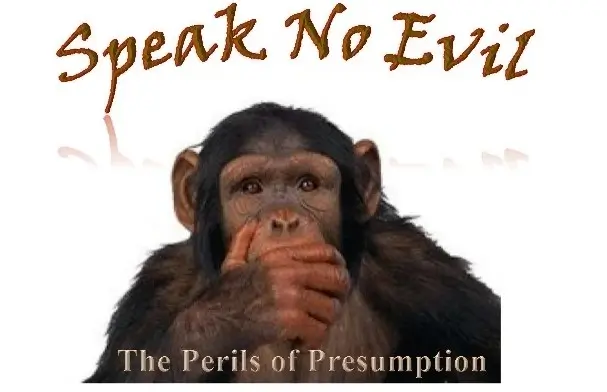Speaking evil of others is wrong! Don’t be judgmental! The book of James tells us so, end of story. But is there an important nuance to truly understand this seemingly straightforward instruction?
“Do not speak evil of one another, brethren. He who speaks evil of a brother and judges his brother, speaks evil of the law and judges the law. But if you judge the law, you are not a doer of the law but a judge. There is one Lawgiver, who is able to save and to destroy. Who are you to judge another?” (James 4:11-12).
We clearly aren’t to be neutral on issues about morality and law. So how to judge, but not judge?
God’s law is simple and straightforward, but perfect, righteous application of the law requires perfect comprehension. Only through God can we properly approach the law, being humbly aware of our own imperfection.
Self-righteous, sharp-tongued criticism and condemnation is a sin. It effectively usurps authority that God has given, at this time, only to Christ. We should judge ourselves first and extend to others the kind of mercy that we would ask Christ to extend to us: “For judgment is without mercy to the one who has shown no mercy. Mercy triumphs over judgment (James 2:13).
When we find fault, more often than not we are trying to establish a personal narrative of our own righteousness—separating and lifting ourselves up at the expense of others. As the book of James instructs we are to treat people with equal favor, measure ourselves against the law, and demonstrate faith through works, preferring humility to ambition. Most importantly, we must understand the limits of our own authority: “… he who speaks evil of a brother and judges his brother, speaks evil of the law and judges the law…” (James 4:11).
How is speaking evil of someone judging the law itself? God gave Christ the authority to judge. It is His exclusive domain: “For as the Father has life in Himself, so He has granted the Son to have life in Himself, and has given Him authority to execute judgment also, because He is the Son of Man. Do not marvel at this; for the hour is coming in which all who are in the graves will hear His voice and come forth—those who have done good, to the resurrection of life, and those who have done evil, to the resurrection of condemnation. I can of Myself do nothing. As I hear, I judge; and My judgment is righteous, because I do not seek My own will but the will of the Father who sent Me” (John 5:26-30). We don’t have the clarity to be able to judge a brother’s heart, only Christ does.
Sometimes we wrestle with issues that are simply not as clearly defined in the Bible as we would like them to be. We may proceed to condemn each other over such issues. But acknowledging Christ’s authority relieves us of the burden of unlawful judgment. We can then focus on fulfilling the royal law of loving our neighbor as ourselves. Speak kindly, and with merciful intent to uplift and encourage those around you.
“Let no corrupt word proceed out of your mouth, but what is good for necessary edification, that it may impart grace to the hearers. . . . Let all bitterness, wrath, anger, clamor, and evil speaking be put away from you, with all malice. And be kind to one another, tenderhearted, forgiving one another, even as God in Christ forgave you,” (Ephesians 4:29,31-32).
Let Christ, the rightful judge, bring all things to light in His mercy and in His time. Rather love the brethren with godly mercy, being willing to forgive and cover trespasses, and press together toward the Kingdom of God.
Staff


